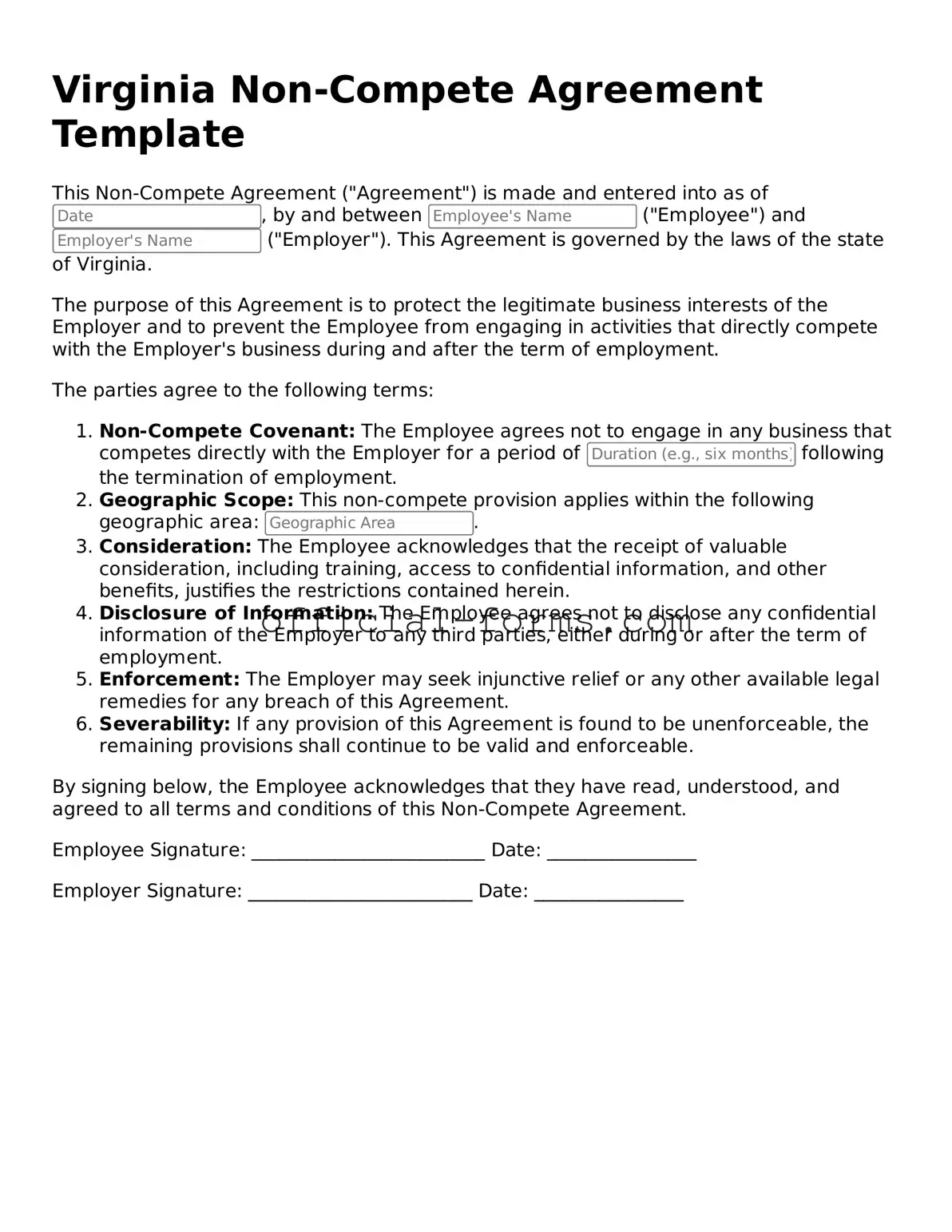Filling out a Virginia Non-compete Agreement form can be a straightforward process, but many individuals make common mistakes that can lead to complications down the line. Understanding these pitfalls can help ensure that the agreement is completed correctly and serves its intended purpose.
One frequent mistake is failing to clearly define the scope of the agreement. A non-compete should specify the activities that are restricted. Vague language can lead to misunderstandings and potential legal disputes. It is essential to articulate precisely what actions are prohibited to avoid ambiguity.
Another common error is not considering the geographic limitations. The agreement must outline where the restrictions apply. If the geographic area is too broad, it may be deemed unenforceable. On the other hand, a well-defined area can help protect the employer's interests while remaining fair to the employee.
Individuals often overlook the duration of the restrictions. The time period during which the non-compete is in effect should be reasonable. A duration that is excessively long can lead to challenges in court. It’s crucial to strike a balance that protects the business without unduly hindering the employee's ability to find work.
Inadequate consideration of employee rights is another mistake. Non-compete agreements should not infringe on an employee's right to work in their chosen field. Ensuring that the terms are fair and reasonable can help avoid legal issues and foster a better relationship between employer and employee.
Some individuals neglect to include consideration in the agreement. Consideration refers to something of value exchanged between the parties. Without it, the agreement may be unenforceable. Employers should offer something tangible, such as a job offer or a raise, in exchange for signing the non-compete.
Another mistake involves not having the agreement reviewed by legal counsel. While it may seem unnecessary, having a lawyer examine the document can help identify potential issues and ensure compliance with Virginia laws. Legal advice can provide peace of mind and enhance the enforceability of the agreement.
People often fail to document changes made to the agreement. If any modifications are made after the initial drafting, it is important to keep a record of these changes. This documentation can be critical in case of disputes, as it demonstrates the intentions of both parties.
Additionally, some individuals forget to communicate the terms of the non-compete agreement clearly. Employees should fully understand what they are agreeing to before signing. Open communication can prevent misunderstandings and foster trust between the employer and employee.
Lastly, neglecting to keep copies of the signed agreement is a common oversight. Both parties should retain a copy for their records. This ensures that everyone involved has access to the same information and can refer back to the agreement if necessary.

